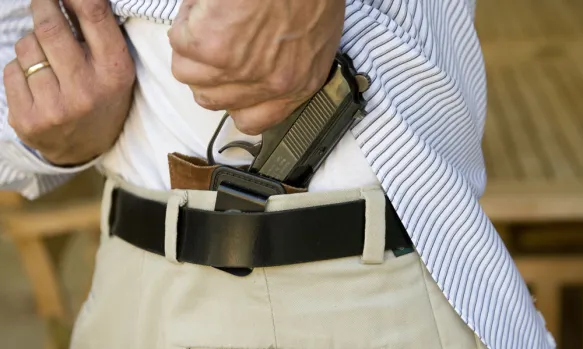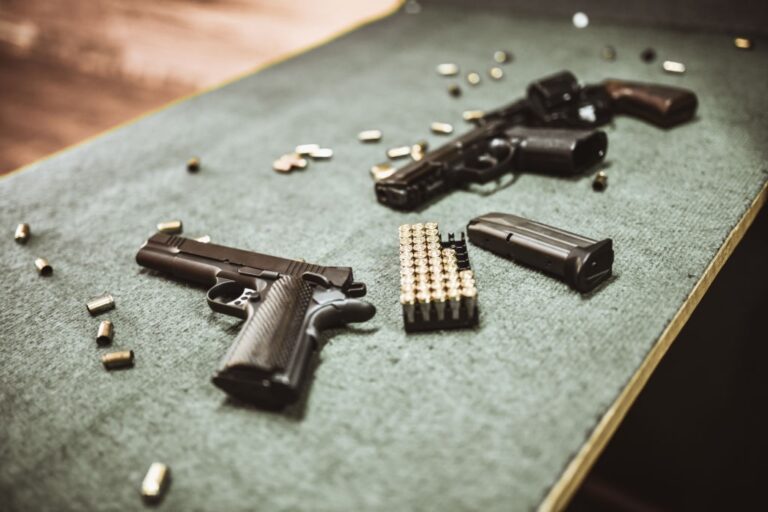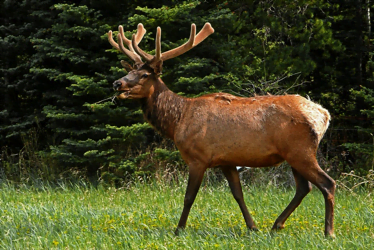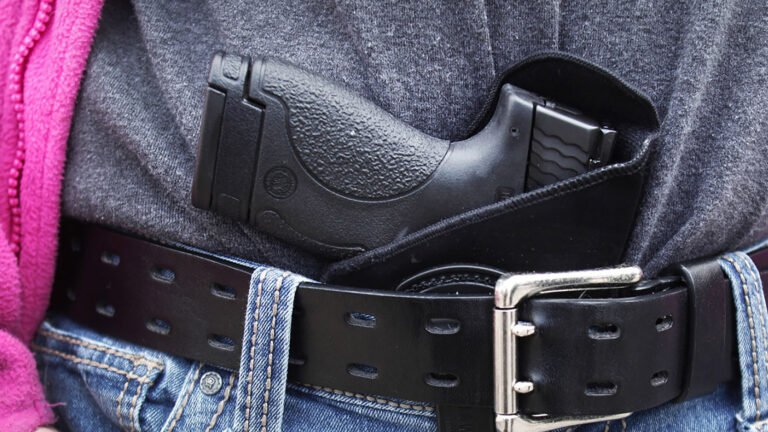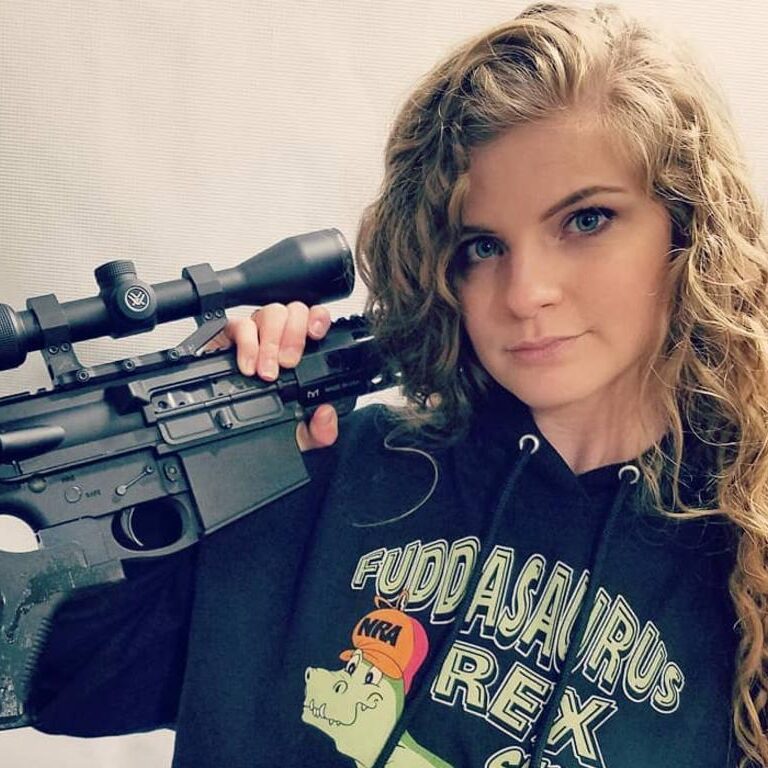New York Concealed Carry Weapon (CCW): Gun Laws, Application, Requirements & Online Training
Concealed carry laws vary widely across the United States, and New York is no exception. With a May-issue policy for pistol licenses, the state empowers local counties to issue permits based on their discretion. In this comprehensive guide, we’ll explore the ins and outs of New York’s concealed carry regulations, helping you navigate the complexities of obtaining and exercising your CCW permit.
Understanding New York’s May-Issue Policy
New York operates under a May-issue policy for pistol licenses, granting local counties the authority to decide who is eligible to carry concealed firearms. This discretionary approach means that each county may have slightly different requirements and standards for issuing CCW permits. Before delving into the specifics of obtaining a New York CCW permit, let’s explore the key aspects of this policy.
Types of Concealed Carry Licenses
In New York, concealed carry permits come in various types, each granting specific rights and privileges. While different counties may issue different types of licenses, the most common one allows you to possess your firearm in most places within the state. It’s essential to understand the nuances of these license types to ensure you apply for the one that aligns with your needs.
Meeting New York’s Gun Law Requirements
Before you can even consider applying for a concealed carry permit in New York, you must meet all the state’s stringent weapons laws requirements. These requirements encompass various aspects, including age restrictions, citizenship status, and character evaluations. Ensuring you fulfill these prerequisites is the first step toward obtaining your CCW permit.
Concealed Carry Permits: A Unique Self-Protection Need
One of the defining features of New York’s concealed carry permit application process is the requirement for a unique self-protection need. This means you must demonstrate a specific and credible reason for seeking a CCW permit, beyond a general desire for personal safety. Understanding what constitutes a unique self-protection need is crucial for a successful application.
Residency and Employment Considerations
New York’s concealed carry permits are generally available to residents, part-time residents, and individuals employed within the state. However, specific counties may have additional residency or employment requirements. Whether you’re a full-time resident, a seasonal visitor, or work within New York, knowing your eligibility status is vital.
Firearm Training: A Prerequisite for Concealed Carry
Firearm training is a mandatory prerequisite for obtaining a concealed carry permit in New York. Before you can carry a concealed firearm, you must complete a state-approved training program, which includes both classroom instruction and live range training. This training ensures that permit holders are knowledgeable about firearm safety and responsible usage.
Recent Changes in New York’s CCW Policies
As of August 25th, 2022, significant changes have been made to New York’s concealed carry policies. The Supreme Court overturned the Sullivan Act, removing the unique self-protection need requirement for obtaining a concealed carry permit. This change has expanded the eligibility criteria, making it easier for law-abiding citizens to obtain a CCW permit, even in areas like New York City.
Reciprocity: Where Can Your New York CCW Be Honored?
New York does not have a reciprocity agreement with any other state, which means it does not recognize concealed carry permits issued by other states. This lack of reciprocity has important implications if you plan to carry your firearm while traveling. It’s crucial to be aware of which states will honor your New York CCW permit and where you can legally carry concealed.
Restricted Reciprocity with Michigan
While New York lacks reciprocity with most states, there’s an exception for Michigan. If you’re a full resident of New York and hold a New York CCW permit, you may be allowed to carry concealed in Michigan. However, this exception does not apply to partial residents who hold permits based on residency in New York.
States with Permitless Firearm Policies
In contrast to states with strict concealed carry regulations, some states have adopted permitless firearm policies. These policies, often referred to as “Constitutional Carry,” allow individuals to carry firearms without the need for a CCW permit. It’s essential to be aware of these states’ policies and whether you need a permit to carry concealed within their borders.
Navigating Location Restrictions in New York
While having a concealed carry permit grants you the right to carry in many places, there are specific locations where carrying a firearm is prohibited by law. Understanding these location restrictions is crucial to avoid legal issues and ensure that you carry your firearm responsibly.
Places Off-Limits for Concealed Carry
New York’s gun laws prohibit concealed carry in certain locations, including:
- Schools, technical institutions, colleges, and universities
- Children’s facilities or daycare centers
- State parks (except for hunting purposes)
- Liberty Island and the monument for the Statue of Liberty
- Campgrounds for the general public (except during hunting season)
- Zoar Valley Multipurpose Area (except during hunting season)
- Specific areas of the Adirondack Mountain Reserve
- Courtyards and courthouses
- Mental health facilities (without permission)
- Bars and restaurants serving alcohol
- Government buildings and properties in some cities and counties
- Airports
- Any place prohibited by federal laws
Exceptions to Location Restrictions
While there are many places where concealed carry is prohibited, there are also exceptions where carrying is allowed:
- Restaurants that don’t sell alcohol (with permission and a CCW permit)
- Private vehicles (with a CCW permit and proper storage)
- Forest areas of New York College of Environmental Science
Concealed Carry for Law Enforcement Officers
The Law Enforcement Officer Safety Act (LEOSA) allows active and retired law enforcement officers to carry firearms nationwide, irrespective of state and local restrictions. For retired officers in New York, obtaining the CCW permit under LEOSA requires specific qualifications and certifications.
Buying and Selling Firearms in New York
New York’s gun purchase, sale, transport, and transfer laws are stringent and must be carefully followed to remain compliant with the state’s regulations. Understanding the requirements and processes involved in buying and selling firearms is essential for any gun owner or potential buyer.
Firearms Purchase Permits and Registrations
To purchase handguns in New York, you need a purchase permit, which is not required for long guns. Additionally, all handguns purchased in the state must be registered, but there are no registrations for shotguns. Your New York Pistol License will contain essential information about your handgun, such as the caliber, model, serial number, and manufacturer’s name.
Criminal Record Background Checks
Before purchasing a firearm in New York, licensed dealers must conduct a criminal record background check, which they must report to the New York State Department and maintain records of the sale. Additionally, before transferring a firearm, you must notify the state police department or local law enforcement in writing, excluding transfers between immediate family members.
Waiting Periods for Firearm Purchases
New York implemented a waiting period of thirty days after the background check for firearms sales, beginning in September 2019. This waiting period was put in place to address delays in the National Instant Criminal Background Check System’s results.
Age Requirements for Firearm Possession
In New York, you must be at least twenty-one years old to possess or transport firearms. Adhering to this age requirement is essential to remain in compliance with the state’s gun laws.
Possession of Firearms in Private Properties
One relief for gun owners in New York is that they do not need a CCW permit to possess firearms in their homes or on any property they own. This provision allows you to exercise your Second Amendment rights securely within your private space.
Purchasing Handguns: The Process Unveiled
Obtaining a handgun in New York requires meticulous adherence to specific processes, including the NICS background check. Understanding how to apply for a purchase permit and the steps involved in purchasing a handgun can ensure a smooth and legal transaction.
Castle Doctrine: Defending Your Safe Territory
New York’s Castle Doctrine allows you to defend yourself with deadly force when you are in your dwelling place and have reason to believe that an intruder is attempting to break in. However, the law mandates retreat when safe to do so, when not in your dwelling place.
New York CCW Permit Requirements
Before applying for a concealed carry permit in New York, you must satisfy a set of requirements. These include being at least twenty-one years old, a legal citizen of the United States, and of good moral character. Additionally, you must attend in-person firearm training and meet federal and state laws for concealed carry permit applications.
Step-by-Step Guide to Applying for a CCW Permit
The process of obtaining a New York concealed carry permit involves multiple steps, from downloading the application form to undergoing interviews and background checks. This step-by-step guide will help you navigate the application process with confidence.
Additional Resources for New York Gun Laws
Staying informed about New York’s gun laws and concealed carry regulations is crucial for responsible gun ownership. Here are some additional resources to help you further understand the complexities of New York’s firearm regulations:
- New York Gun Laws
- New York Open Carry Laws
- New York Gun Permit Laws
Remember, knowledge and compliance with the law are essential for safe and responsible firearm ownership. Stay informed and exercise your Second Amendment rights responsibly.
Conclusion
Concealed carry laws in New York can be complex and require meticulous attention to detail. Understanding the May-issue policy, the various types of concealed carry permits, and the location restrictions will help you navigate the application process and exercise your Second Amendment rights responsibly.
By meeting all the requirements, completing the necessary training, and adhering to state regulations, you can obtain your New York concealed carry permit and enjoy the added protection and peace of mind it provides.
FAQs;
Q1.How Long Is New York CCW Permit Valid For?
New York CCW permits do not expire. However, there is a recertification process every five years to ensure continued eligibility.
Q2. What Is The Minimum Age To Conceal Carry In New York?
You must be at least twenty-one years old to be eligible for a concealed carry permit in New York.
Q3. How Much Is The New York Concealed Carry Permit Application?
The cost of the CCW permit application varies by county but generally ranges from $20 for the initial application to $10 for recertification.
Q4. How Long Does It Take To Get My New York Pistol License?
The processing period for a New York CCW permit can take up to six months, so it’s essential to apply well in advance.
Q5. Can I Carry Concealed in New York City?
Yes, following the changes in 2022, concealed carry is permitted in New York City, provided you meet all other requirements and have a valid CCW permit.
Q6. Can you carry Leosa in NYC?
Qualified retired law enforcement officers cannot carry firearms in New York City under LEOSA due to restrictions on large-capacity ammunition feeding devices.
Q7. Can retired law enforcement concealed carry in Texas?
Yes, honorably retired law enforcement can concealed carry in Texas under LEOSA without a state permit.
Q8. Can I carry a gun in New York?
Carrying handguns, rifles, and shotguns requires a New York pistol permit, which is difficult to obtain for most residents.
